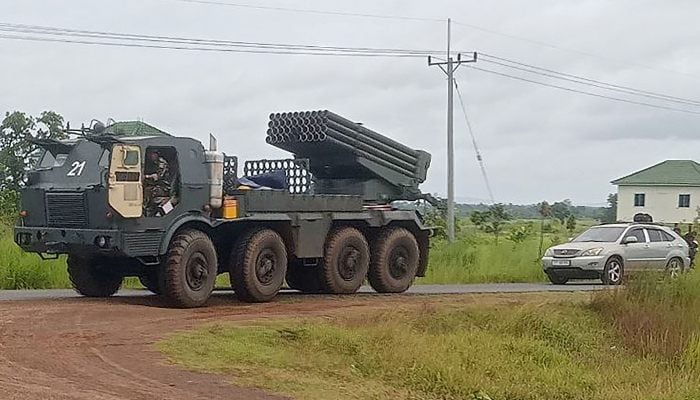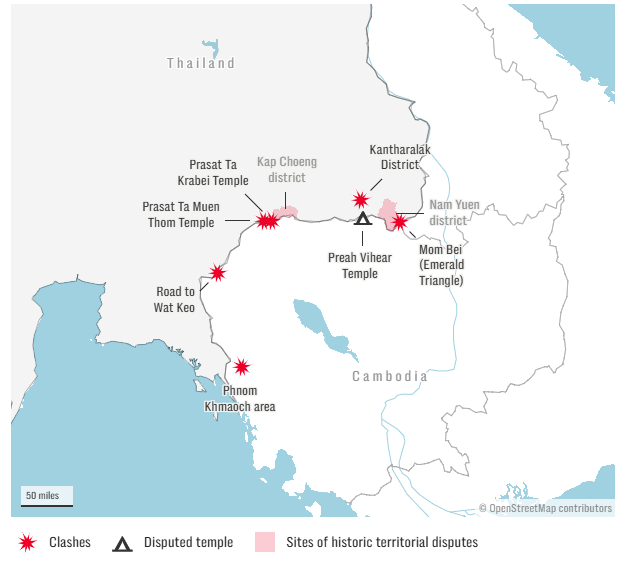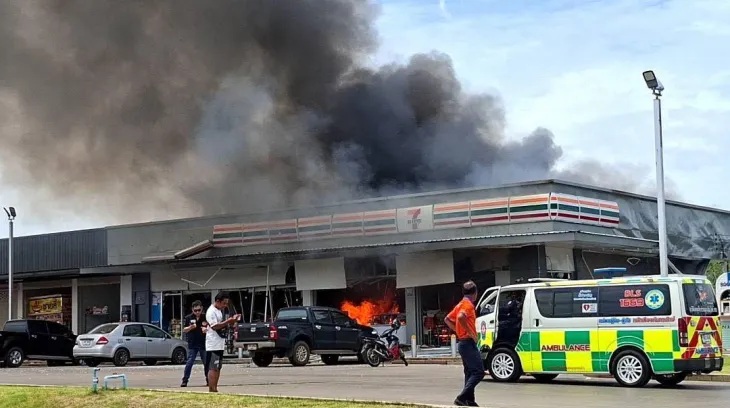
Clashes Erupt Again at Thailand–Cambodia Border
Protracted Conflict Erupts into Border Violence
The escalating tensions between Thailand and Cambodia have once more resulted in lethal confrontations, with both countries alleging hostility from one another along a contested segment of their mutual border. The origin of the escalated violence is a century-old dispute regarding colonial-era border maps, particularly concerning the ancient Preah Vihear temple complex.
The conflict at the Thailand–Cambodia border originates from divergent interpretations of maps created during the French colonial era. Although the 1962 International Court of Justice (ICJ) ruling granted the temple to Cambodia, Thailand persists in disputing the adjacent territory. This unresolved tension serves as the catalyst for the current escalation.

ICJ Judgements and Persisting Sovereignty Issues
Notwithstanding the ICJ’s ruling in favor of Cambodia, Thailand has never wholly acknowledged the court’s jurisdiction over all contested territories. In 2008, tensions intensified as Cambodia sought UNESCO World Heritage designation for Preah Vihear. This action incited Thai nationalists, leading to border conflicts and more than 20 fatalities.
Despite the ICJ reaffirming its support for Cambodia in 2011, the ruling did not delineate all borders. As a result, Thailand persisted in contesting certain sections of the temple’s vicinity. The border conflict between Thailand and Cambodia remains unresolved, with increasing political and military pressure on both parties.
Intensification Triggered by Landmine Incidents and Ambushes
Tensions that had significantly diminished since 2013 have escalated in recent months. The immediate catalyst was the demise of a Cambodian soldier during a border altercation in May. Subsequently, both nations have stationed military forces in contested regions, leading to reciprocal provocations.
A landmine detonation in a disputed area recently injured three Thai soldiers. Thailand accused Cambodia of deploying new Russian-manufactured mines—equipment not utilized by its armed forces. Cambodia categorically refuted the allegation, asserting that the ordnance were remnants from 20th-century conflicts. Another explosion on Wednesday injured five additional Thai soldiers, leading Thailand to close all land border crossings with Cambodia.
Diplomatic Repercussions and Reciprocal Actions
In reaction to the explosions, Thailand expelled the Cambodian ambassador from Bangkok and recalled its ambassador from Phnom Penh. Cambodia responded by reducing diplomatic relations and implementing extensive prohibitions on Thai imports, including fuel, agricultural products, internet services, and power connections.
The conflict at the Thailand–Cambodia border has transcended military issues, significantly impacting diplomatic, economic, and cultural relations. Cambodian authorities prohibited Thai films and television broadcasts, exacerbating nationalistic sentiments on both sides.
Armed Conflict at the Prasat Ta Moan Thom Temple
The most severe combat transpired in proximity to the ancient Prasat Ta Moan Thom temple, a millennium-old Khmer-Hindu site located in a disputed region. On Thursday morning, Thai forces allegedly identified a drone accompanied by six armed Cambodian soldiers. Conflicts rapidly proliferated to six sites along the border.
The Royal Thai Army reports that 11 civilians were killed when Cambodian forces purportedly fired BM-21 Grad rockets into Surin province. Thailand used F-16 fighter jets to execute retaliatory strikes against Cambodian military positions. Cambodia claimed that Thai aircraft discharged munitions near Wat Keo Sikkha Kirisvara, the location of its deployed troops.
Thai authorities have consequently evacuated more than 40,000 civilians across 86 districts.
Political Turmoil in Thailand Intensifies
Internal political turmoil in Bangkok exacerbates the recent stage of the Thailand–Cambodia border conflict. A leaked audio clip purportedly showing Thai Prime Minister Paetongtarn Shinawatra’s deference to former Cambodian Prime Minister Hun Sen sparked public outrage and calls for her removal.
Analysts indicate that the Shinawatra family, historically influential in Thai politics, currently confronts a crisis of credibility. The government must not project weakness—particularly in light of casualties resulting from landmines and airstrikes. The incident has solidified Thailand’s position, rendering diplomatic compromise progressively more challenging.
Cambodia’s Strategic Initiatives to Ascend New Leadership
Observers contend that Cambodia’s Prime Minister Hun Manet may be leveraging the conflict to enhance his national reputation. Manet, the son of Hun Sen, has faced challenges in establishing his political identity. The current conflict may afford him an opportunity to present himself as a robust, resolute leader safeguarding Cambodian sovereignty.

Furthermore, some analysts speculate that the economic slowdown in Cambodia could potentially escalate border tensions. Military posturing may act as a diversion from internal issues while consolidating public support for nationalistic ideologies.
Global Responses and Potential for Mediation
China, fostering strong relations with both countries, has advocated for restraint and indicated its readiness to facilitate peace negotiations. Beijing’s involvement in the Thailand–Cambodia border dispute may be pivotal, particularly in light of its increasing influence in Southeast Asia.
The 11-member ASEAN regional bloc has not yet executed a formal intervention but may soon face pressure to do so. The United States and the European Union have urged an immediate ceasefire and proposed convening a UN Security Council session should hostilities persist.
Probability of Conflict or Managed Escalation?
Although a full-scale war is improbable, the Thailand–Cambodia border conflict has reached its most perilous juncture in more than ten years. Analysts caution that escalating public discontent, military fatalities, and diplomatic failures may compel both governments to adopt a rigid stance.
The involvement of contemporary weaponry—jet fighters, rockets, and landmines—renders the risk of escalation significant. Without prompt mediation, this localized conflict may escalate to a wider regional crisis.







